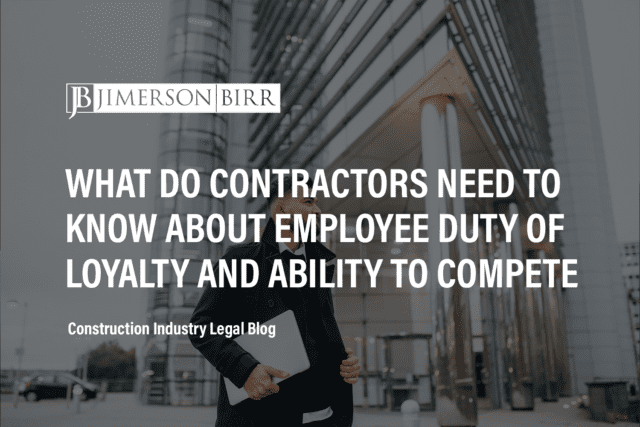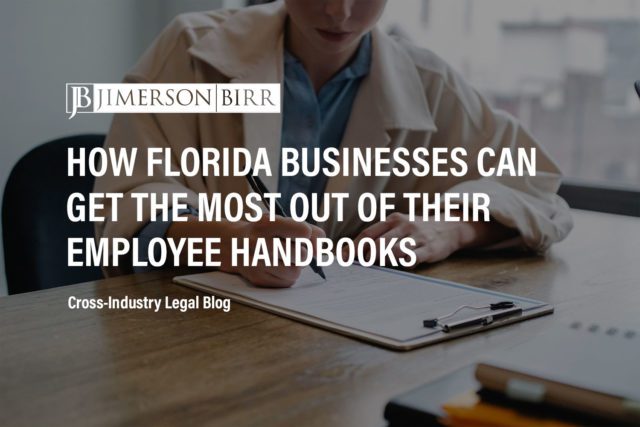What do employee and company social media policies encompass?
Employee and company social media policies in Florida are crafted to provide clear guidelines for employees’ use of social media platforms. These guidelines serve a multifaceted purpose, aiming to safeguard the company’s reputation, foster a professional work environment, and align with relevant legal statutes.
For instance, a comprehensive policy may address confidentiality, privacy, and appropriate online conduct. Notably, within the framework of Florida employment law, these policies must tread carefully to avoid violating employees’ rights protected under the National Labor Relations Act (NLRA).
Need help with training, compliance, or litigation to protect your workplace? Schedule your consultation today with a top employment law attorney.
Which laws, rules, and regulations apply to employee and company social media policies?
In Florida, employee and company social media policies are subject to a web of laws, rules, and regulations, including:
- National Labor Relations Act (NLRA): Safeguarding employees’ rights to engage in protected concerted activity, the NLRA imposes constraints on social media policies to ensure they don’t infringe on these rights.
- Florida Computer Abuse and Data Recovery Act (CADRA): Prohibiting unauthorized access to computers and networks, CADRA becomes relevant when employees misuse company resources for social media.
- Florida Statute § 448.095: This statute prohibits employers from compelling employees or job applicants to provide access to their personal social media accounts.
- Title VII of the Civil Rights Act: With its prohibition of discrimination based on protected characteristics, Title VII mandates that social media policies do not contribute to a hostile work environment or discrimination.
These legal safeguards collectively ensure fairness, non-discrimination, and compliance with applicable legal requirements in Florida’s social media policies.
What common issues associated with social media policies lead to litigation against employers?
Several issues associated with employee and company social media policies can lead to litigation against employers, including:
- Violation of free speech rights: Employees may allege First Amendment violations if a social media policy restricts their speech.
- Protected concerted activity: Employers disciplining or terminating employees for engaging in NLRA-protected concerted activity may be entangled in litigation.
- Invasion of privacy: Employees might argue that their privacy rights, protected by Florida Statute § 448.095, were breached by employer actions regarding social media accounts.
- Discrimination and harassment: Inconsistent application of social media policies or policies contributing to a hostile work environment may lead to litigation under Title VII.
What are the prerequisites to file a lawsuit regarding employee and company social media policies, and what legal defenses may employers assert?
Prerequisites for filing a lawsuit:
- Exhaustion of administrative remedies: Before filing a lawsuit, employees typically must exhaust administrative remedies, such as filing a complaint with the Equal Employment Opportunity Commission (EEOC) for Title VII violations.
- Proof of harm: Employees must demonstrate actual harm or damages resulting from the employer’s actions or social media policy.
- Protected activity: Employees need to prove their social media activity was legally protected, such as engaging in concerted activity under the NLRA.
- Statute of limitations: Lawsuits must be filed within the applicable statute of limitations, varying depending on the legal claim.
Common Legal Defenses for Employers:
- Legitimate, non-discriminatory reason: Employers may argue that adverse actions were taken for reasons unrelated to social media activity or protected characteristics.
- Fair enforcement of policy: Employers can assert consistent and fair application of their social media policy, irrespective of protected characteristics.
- Business necessity: Employers may defend policies by demonstrating they serve a legitimate business purpose, such as protecting trade secrets or maintaining a professional work environment.
- Waiver or release: Employers might argue that an employee waived their right to sue through a release or settlement agreement related to the social media policy issue.
To determine whether your unique situation may necessitate litigation or another form of specialized advocacy, please contact our office to set up your initial consultation.
What measures must employers take to comply with employee and company social media policies?
To ensure legal compliance with employee and company social media policies, employers should consider the following measures:
- Clear and concise policy: Develop a social media policy that clearly outlines acceptable and unacceptable online behavior, along with potential consequences for violations.
- First Amendment considerations: Ensure the policy respects employees’ First Amendment rights and doesn’t infringe on protected speech.
- Compliance with NLRA: Exercise caution to avoid restricting employees’ rights under the NLRA to engage in protected concerted activity.
- Respecting privacy: Adhere to Florida Statute § 448.095, refraining from requesting access to employees’ personal social media accounts.
- Consistent enforcement: Apply the policy fairly and consistently across all employees to mitigate claims of discrimination or harassment.
Please contact our office to set up your initial consultation to see what forms of legal advocacy or intervention may be available for your unique situation.
Frequently Asked Questions
Can employers legally monitor employees’ social media activities?
Yes, employers can monitor the public social media activities of their employees, but they must respect privacy rights and not request access to employees’ accounts, as per Florida Statute § 448.095.
Are there exceptions to the rules prohibiting employers from accessing employees’ personal social media accounts?
Yes, exceptions exist. For instance, employers may access an employee’s social media account if necessary to investigate allegations of employee misconduct or to comply with legal requirements.
Can an employer terminate an employee for posting negative comments about the company on social media?
It depends on the nature of the comments. If the comments are part of protected concerted activity under the NLRA, the employee may not be terminated. However, if the comments are not protected, the employer may take disciplinary action, including termination, as long as it is consistent with their social media policy and other applicable laws.
Have more questions about employment law training, compliance, or litigation?
Crucially, this overview of employee and company social media policies does not begin to cover all the laws implicated by this issue or the factors that may compel the application of such laws. Every case is unique, and the laws can produce different outcomes depending on the individual circumstances.
Jimerson Birr attorneys guide our clients to help make informed decisions while ensuring their rights are respected and protected. Our lawyers are highly trained and experienced in the nuances of the law, so they can accurately interpret statutes and case law and holistically prepare individuals or companies for their legal endeavors. Through this intense personal investment and advocacy, our lawyers will help resolve the issue’s complicated legal problems efficiently and effectively.
Having a Jimerson Birr attorney on your side means securing a team of seasoned, multi-dimensional, cross-functional legal professionals. Whether it is a transaction, an operational issue, a regulatory challenge, or a contested legal predicament that may require court intervention, we remain tireless advocates at every step. Being a value-added law firm means putting the client at the forefront of everything we do. We use our experience to help our clients navigate even the most complex problems and come out the other side triumphant.
If you want to understand your case, the merits of your claim or defense, potential monetary awards, or the amount of exposure you face, you should speak with a qualified Jimerson Birr lawyer. Our experienced team of attorneys is here to help. Call Jimerson Birr at (904) 389-0050 or use the contact form to schedule a consultation.
Here are some blogs written by JB attorneys that provide more information about employment law:
- Independent Contractor or Employee: Know the Difference (jimersonfirm.com)
- Rescinding Job Offers in At-Will Employments in Florida | Jimerson Birr (jimersonfirm.com)
- Tips for Drafting Employee Handbooks in Florida | Jimerson Birr (jimersonfirm.com)
- Understanding The EEOC Process: Employee Sexual Harassment And Sexual Discrimination Claims In The Era Of #MeToo (jimersonfirm.com)
- Contesting OSHA Violations and OSHA Citations: A Guide To OSHA Employer Rights (jimersonfirm.com)
- What Do Contractors Need to Know About Employee Duty of Loyalty and Ability to Compete | Jimerson Birr (jimersonfirm.com)

We live by our 7 Superior Service Commitments
- Conferring Client-Defined Value
- Efficient and Cost-Effective
- Accessibility
- Delivering an Experience While Delivering Results
- Meaningful and Enduring Partnership
- Exceptional Communication Based Upon Listening
- Accountability to Goals











